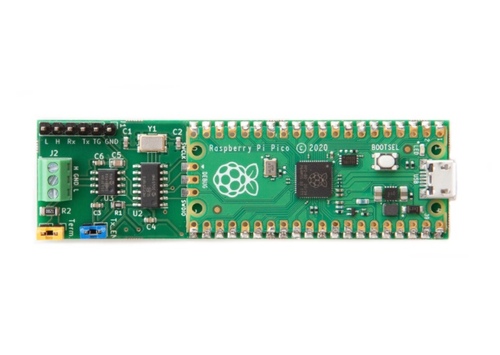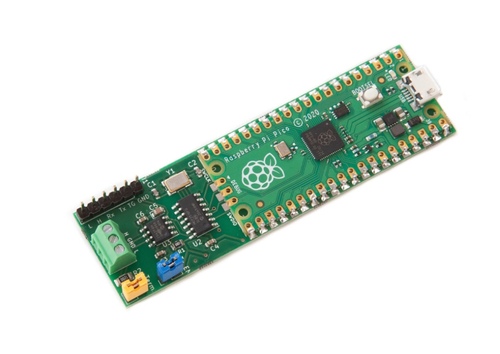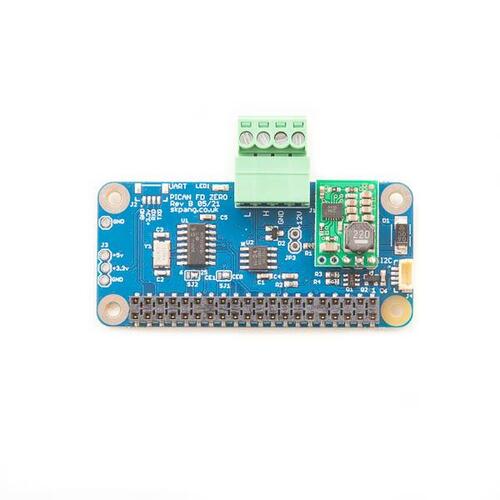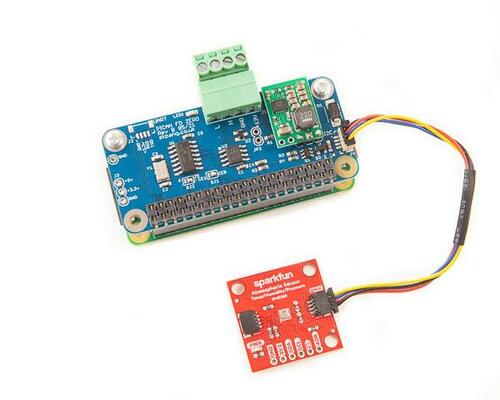Copperhill Technologies, a provider of embedded systems for CAN Bus development, introduced a new line of small form factor Classical CAN and CAN FD interfaces operating under embedded Linux. The interface boards are based on the popular Raspberry Pi series of CPU modules, and they support programming in Python and C.
GREENFIELD, Mass. - July 20, 2021 - PRLog -- Copperhill Technologies offers a great variety of Classical CAN and CAN FD HATs for the Raspberry Pi, which support the development of automotive and industrial applications. The newest members of that product line were designed with a small form factor in mind.
The CANPico module is a carrier board for the Raspberry Pi Pico. The Raspberry Pi Pico is a tiny, fast, and adaptable board built using the RP2040, a dual-core Arm Cortex-M0+ processor with 264KB internal RAM and support for up to 16MB of off-chip Flash.
The CANPico board is soldered onto the Pico, connecting the Raspberry Pi to a CAN Bus controller and transceiver, ready for connection to a CAN Bus network via a simple screw terminal. In addition, the CANPico carries an instrument header with the CAN H and CAN L signals and the digital RX and TX signals for use with an oscilloscope or logic analyzer. Software support is via an open-source MicroPython SDK.
The open-source MicroPython SDK from Canis Labs implements a sophisticated CAN API, including priority-inversion free drivers, 1μs accuracy timestamps, large buffers, and an API for triggering a logic analyzer or oscilloscope. Support for communicating to a host device over USB (via the MIN protocol) enables applications like bus logging or even using a CANPico as a PC CAN interface. The SDK also includes the CANHack toolkit for low-level error injection. The SDK allows Python code to operate on the dual-core RP2040 microcontroller of the Raspberry Pi Pico. It responds in real-time to CAN Bus data traffic with times measured in microseconds rather than milliseconds, making it an excellent platform for hardware-in-the-loop test and emulation.
The PiCAN FD Zero HAT provides CAN Bus FD capability for the Raspberry Pi Zero. The Raspberry Pi Zero is a single-board mini-computer, mainly used to design embedded systems for IoT projects. The economical price, small size, and open-source design of this module make it a suitable pick for various applications.
The PiCAN FD Zero HAT uses the Microchip MCP2518FD CAN controller with MCP2562FD CAN transceiver. The CAN_N and CAN_L connection is made via a four-way plug-in terminal block. Also, onboard is a 1A SMPS that supplies power to the PiCAN FD and Pi Zero board.
Both boards, the CANPico and the PiCAN FD Zero HAT, come with extensive documentation, i.e., user manual, schematics, and programming samples.
Contact
Wilfried Voss
***@copperhilltechnologies.com
Photos: (Click photo to enlarge)





Read Full Story - Miniature Embedded Linux Systems For Automotive And Industrial CAN Bus Applications | More news from this source
Press release distribution by PRLog
Miniature Embedded Linux Systems For Automotive And Industrial CAN Bus Applications
July 20, 2021 at 12:07 PM EDT













